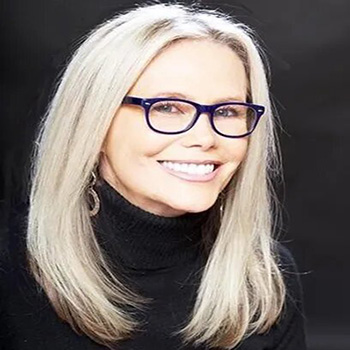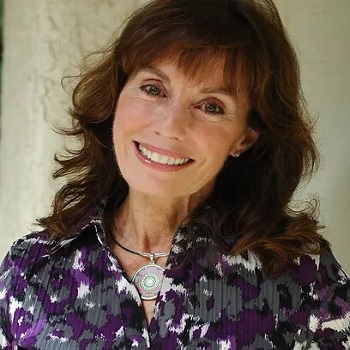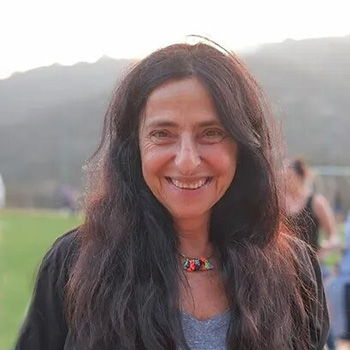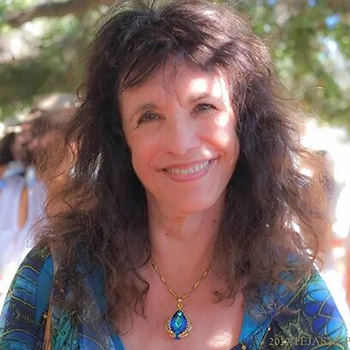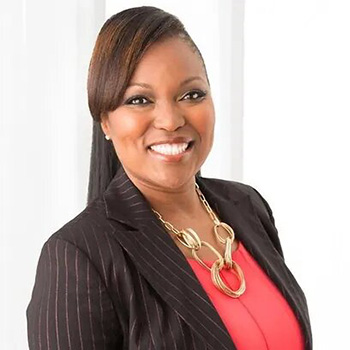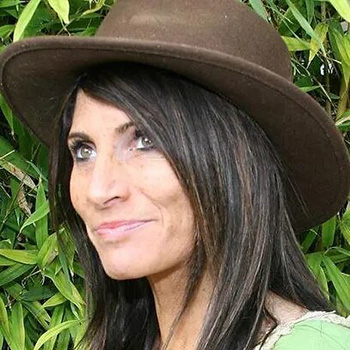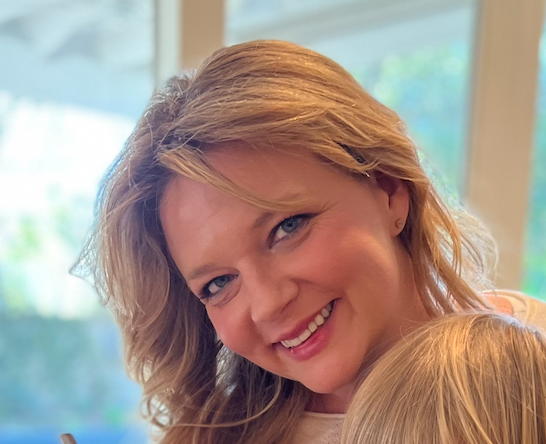Resources
Want more ways to help combat polarization in your day-to-day life?
Here are some resources you can turn to.

Bridging Divides Playbook – A playbook from More in Common highlighting the key skills and strategies for overcoming divides.
Beyond Your Bubble – Written by Tania Israel, this book is an accessible, politically-neutral, resource for people who are interested in dialogue across political lines. It is relatable across demographics and timely for current concerns. The book introduces evidence-based strategies and focuses on skill-development. Readers can learn at their own pace and can practice – on their own, with others, with family, with community. It’s great for groups: faith communities, political organizations and conferences, corporations, self-improvement workshops, nonprofit advocacy associations, book clubs, student groups, and classrooms.
America’s Divided Mind – New insights from brain and behavioral science explain how polarization is fueled by Americans’ misperceptions about each other. Learn more about the psychology that drives us apart, and how we can start to reverse it.
How Business Bridges Divides – This report from Business for America explores how to engage the business community to overcome social and political divisions in America through workforce culture and employee development.

The Fulcrum – The Fulcrum is a news platform where insiders and outsiders to politics are informed, meet, talk, and act to repair our democracy and make it live and work in our everyday lives.
All Sides – AllSides strengthens our democratic society with balanced news, media bias ratings, diverse perspectives, and real conversation, exposing people to information and ideas from all sides of the political spectrum so they can better understand the world — and each other.
Divided We Fall – Divided We Fall is a non-profit news publication working to provide bipartisan dialogue for the politically engaged, publishing written debates between individuals who disagree in order to expose readers to different viewpoints and demonstrate productive civil discourse.
MWEG’S Media Literacy Guide – This document helps teach tools for recognizing bias, inaccuracies, and falsehoods in the news media landscape.
Fact Checking Sites – A list of websites dedicated to fact-checking and preventing the spread of inaccurate or falsified information.

CALM Method –Resolutionaries founder and CEO, Dennis Cohen, talks through four easy steps to help you have constructive conversations with someone you’re at odds with.
How to lead a conversation between people who disagree – A Ted Talk by journalist Eve Pearlman who introduces “dialogue journalism”: a project where journalists go to the heart of social and political divides to support discussions between people who disagree.
3 Ways to Practice Civility – Journalist Steven Petrow looks for answers in the original meaning of the word, showing why civility shouldn’t be dismissed as conversation-stifling political correctness or censorship. Learn three ways we can each work to be more civil — and start talking about our differences with respect.
Do politics make us irrational? – Can someone’s political identity actually affect their ability to process information? The answer lies in a cognitive phenomenon known as partisanship. While identifying with social groups is an essential and healthy part of life, it can become a problem when the group’s beliefs are at odds with reality. So how can we recognize and combat partisanship? Jay Van Bavel shares helpful strategies.
Interfaith Leadership Series – In this eight-part series, you get a chance to explore the foundational concepts of interfaith cooperation, learn about inspiring interfaith leaders, and examine the history of American religious diversity.
Senator Todd Young (IN) and Senator Chris Coons (DE) speak at Notre Dame: Civility and Bartisanship in a Time of Polarization and Gridlock – As part of the 2023-24 Notre Dame Forum on the “Future of Democracy,” join University President Rev. John I. Jenkins, C.S.C., for a fireside chat with Senator Chris Coons (D-DE) and Senator Todd Young (R-IN), as they discuss cultivating civility and bipartisanship in a time of polarization and gridlock.

The Perception Gap Quiz – Do you have a yawning Perception Gap, or are you in sync with the American public? This quiz helps you to gauge your own understanding of people on the other side of the political aisle.
Polarization Detox Challenge – Daily short online exercises to help overcome the toxic polarization harming your health, your relationships, and our country’s ability to thrive.
ListenFirst Academy – The Listen First Project has put together a quick step-by-step guide on how to practice the art of listening as an action.
Strengthening Democracy Challenge: Interventions – Stanford University’s Strengthening Democracy Challenge brought academics, practitioners, and industry experts together in a collective effort to identify short effective interventions to improve Americans’ commitment to democratic principles of political engagement.
One Small Step: This new initiative from Storycorp brings strangers with different political views together to record a 50-minute conversation—not to debate politics, but to learn who we are as people.

Living Room Conversations Topic Library – Living Room Conversations has created Conversation Guides with the goal of making them welcoming to people across the political and cultural spectrum, with over 100 different topics.
Interactivity Foundation Discussion Library – Check out these discussion guides across various topics from the Interactivity Foundation, which emphasize the importance and power of civic discussion.
Dialogue Flow Chart – A visual guide to help people make intentional decisions about whether they want to engage in dialogue and, if so, how to do so effectively.

Citizen Connect Platform – Citizen Connect is a non-partisan platform dedicated to helping Americans right, left and center find events and workshops focused on bridging divides.
Bridging Divides Initiative – Princeton University has created a state-by-state directory that provides information on organizations regularly providing de-escalation bystander intervention, and conflict resolution trainings, in addition to organizations providing virtual or nation-wide trainings.
More Perfect Union – Brickyard Chapters – Across cities and towns just like yours nationwide, More Perfect Union serves our communities by starting with frank and honest conversations where everyone’s voice matters. These Chapters – also known as our Brickyards – are mobile places for neighbors to connect and solve local problems. We do this through respectful and open conversations, and to find common ground as we work together to promote trust and understanding.
Crossing Party Lines – Crossing Party Lines makes it possible for you to talk and connect with Americans who see the world differently. Their goals are to increase tolerance, build community, and encourage civic cooperation. Every week, they discuss important and controversial topics. Participation is open to all, with or without membership. You decide which topics interest you, then sign up on Meetup to attend.

The Way Out: Overcoming Toxic Polarization – In this episode of The Village Square’s podcast, The Way Out, Columbia University’s Peter T. Coleman and BridgeUSA’s Manu Meel discuss overcoming toxic polarization.
The Democracy Group Podcasts – The Democracy Group is a network of podcasts and organizations that create educational content about democracy, civic engagement, and civil discourse. They aim to provide informative, educational content that can increase curiosity and empathy among listeners and use their platform to share the good work of organizations that are taking action to strengthen democracy.
Interfaith America with Eboo Patel podcast – Host Eboo Patel, founder and president of Interfaith America, speaks with a rotating guest list of civic leaders and bridgebuilders working in diverse sections of American civic life.
A Braver Way – Host Mónica Guzmán is joined by guests from across the political spectrum to unearth tools, insights, and messy real life stories that can guide you over the divide in your everyday life. So whether you’re Red, Blue, or something entirely different, “A Braver Way” will help you hear and be heard by people who confound you.
The Hopeful Majority – Every Monday, Manu Meel invites you into a conversation about how we overcome our toxic politics to write the next chapter in our American story.
How to Be a Super Communicator: This featured episode in NPR’s Life Kit podcast asks guest, Charles Duhigg, a Pulitzer Prize-winning reporter and author, about how to unlock the secret language of connection regardless of what may divide you.
To combat misinformation, start with connection, not correction: This featured episode in NPR’s Life Kit podcast walks through six ways to combat misinformation in day-to-day conversations.
Healthy Democracy Ecosystem Map: A comprehensive look at the universe of organizations promoting healthy democracy in America.

Defusing the History Wars – Report by More In Common which explores polarization in the national conversation over how U.S. history should be taught to future generations.
Skills for Bridging the Gap: Interfaith America’s curriculum for educators and facilitators focused on the bridgebuilding practices and skills that help people engage across deep divides.
Free Speech and Inclusion: How College Students Are Navigating Shifting Speech Norms – Co-authored by the Constructive Dialogue Institute and More in Common, this report brings data to inform the public conversation about the current state of free expression and inclusion on college campuses.
BRIDGE Curriculum: Interfaith America’s Building Regular Interfaith Dialogue through Generous Engagement (BRIDGE) curriculum is designed for campus professional staff to be offered within professional development activities (training days, retreats, etc.) Some campus professionals have also found the materials useful for student leadership trainings, depending on the nature of the group and their readiness to talk about worldview. Modules focus on self-reflection, interrogation of biases around worldview, and activities to practice discussing religious and worldview identity from our own perspectives.
NewsLitNation: News Literacy Project’s News Literacy Educator Network, with events and online tools to help educators teach students to become news literate.
KidCitizen: Video series where children interactively explore Congress and Civic Engagement through historical primary sources, and connect what they find with their daily lives.

Democracy for President – Democracy for President provides cutting-edge data and unbiased information on the electoral process to foster civic engagement.
Faith in Elections Playbook – Interfaith America’s Faith in Elections Playbook supports faith-based, civic and campus communities with accessible, actionable resources to support the 2024 election.
Common Ground Scorecard – The Common Ground Scorecard is a tool for helping voters learn which elected officials and candidates seek common ground on important issues to move the country forward.

The Commons’ Democracy Resource Hub – The Commons’ Social Change Library has created a fantastic resource specifically geared towards defending democracy and bridge building.
The Pluralism Challenge – The George W. Bush Presidential Center has compiled a series-style database on the nature of pluralism and how it’s vital to strengthening our democracy.


